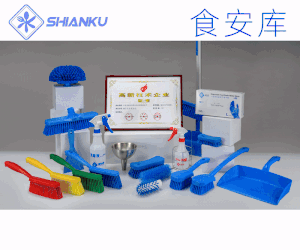食品伙伴網(wǎng)訊 2025年6月13日,歐盟食品安全局(EFSA)發(fā)布消息稱,擬制定苯醚甲環(huán)唑(difenoconazole)在各類作物中的進口限量。
根據(jù)歐盟委員會第396/2005號法規(guī)第6章,Syngenta Crop Protection AG 向西班牙國家主管部門提交申請,要求制定苯醚甲環(huán)唑在柑橘類水果、樹堅果、芒果、木瓜、干豌豆和大豆中的進口限量。根據(jù)風(fēng)險評估結(jié)果,EFSA得出結(jié)論,根據(jù)所報告的農(nóng)業(yè)實踐,短期或長期攝入因使用苯醚甲環(huán)唑產(chǎn)生的殘留物不太可能對消費者健康構(gòu)成風(fēng)險。部分原文報道如下:
In accordance with Article 6 of Regulation (EC) No 396/2005, the applicant Syngenta Crop Protection AG submitted an application to the competent national authority in Spain (rapporteur Member State, RMS) to set import tolerances for the active substance difenoconazole in various crops imported from the United States and Brazil. The data submitted in support of the request were found to be sufficient to derive maximum residue level (MRL) proposals for citrus fruits, tree nuts, mangoes, papayas, dry peas and soya beans. Adequate analytical methods for enforcement are available to control the residues of difenoconazole in the commodities under consideration, animal tissues and eggs at the validated limit of quantification (LOQ) of 0.01 mg/kg and in milk at the validated LOQ of 0.005 mg/kg. Quick, Easy, Cheap, Effective, Rugged, and Safe (QuECHERs) methods are also available for the determination of difenoconazole alcohol (CGA205375) in animal matrices at the validated LOQ of 0.012 mg/kg. based on the risk assessment results, EFSA concluded that the short-term and long-term intake of residues resulting from the use of difenoconazole according to the reported agricultural practices is unlikely to present a risk to consumer health.
本文由食品伙伴網(wǎng)食品資訊中心編輯,有任何疑問,請聯(lián)系news@foodmate.net。
相關(guān)政策解讀











 地區(qū):
地區(qū):






 魯公網(wǎng)安備 37060202000128號
魯公網(wǎng)安備 37060202000128號



